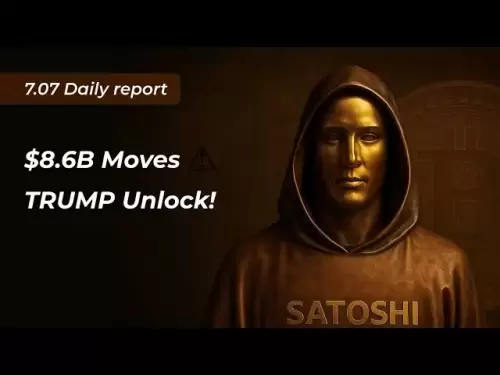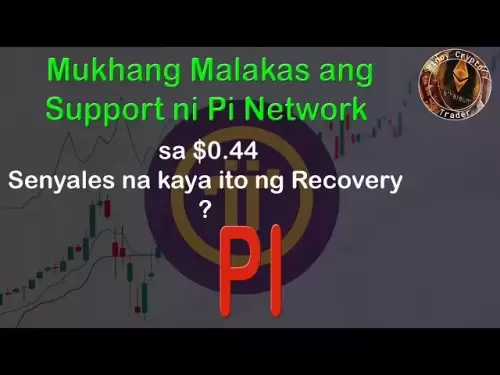-
 Bitcoin
Bitcoin $108,708.8110
0.60% -
 Ethereum
Ethereum $2,561.6057
1.91% -
 Tether USDt
Tether USDt $1.0001
-0.03% -
 XRP
XRP $2.2795
0.57% -
 BNB
BNB $662.2393
1.00% -
 Solana
Solana $153.1346
3.74% -
 USDC
USDC $1.0000
0.00% -
 TRON
TRON $0.2877
0.97% -
 Dogecoin
Dogecoin $0.1710
3.93% -
 Cardano
Cardano $0.5871
1.61% -
 Hyperliquid
Hyperliquid $39.6663
1.68% -
 Sui
Sui $2.9032
0.79% -
 Bitcoin Cash
Bitcoin Cash $496.1879
1.71% -
 Chainlink
Chainlink $13.5807
3.01% -
 UNUS SED LEO
UNUS SED LEO $9.0777
0.61% -
 Stellar
Stellar $0.2514
4.51% -
 Avalanche
Avalanche $18.1761
1.86% -
 Shiba Inu
Shiba Inu $0.0...01173
1.72% -
 Toncoin
Toncoin $2.8010
-4.23% -
 Hedera
Hedera $0.1594
3.21% -
 Litecoin
Litecoin $87.0257
-0.53% -
 Monero
Monero $319.1217
1.79% -
 Polkadot
Polkadot $3.3853
0.68% -
 Dai
Dai $0.9999
-0.01% -
 Ethena USDe
Ethena USDe $1.0003
0.02% -
 Bitget Token
Bitget Token $4.3420
-0.97% -
 Uniswap
Uniswap $7.3772
1.39% -
 Aave
Aave $286.6277
5.61% -
 Pepe
Pepe $0.0...09994
2.33% -
 Pi
Pi $0.4589
1.76%
What is the difference between LBank's perpetual contract and delivery contract?
LBank offers perpetual and delivery contracts; perpetuals have no expiration and use funding rates, while deliveries have fixed expirations and rely on convergence.
Apr 25, 2025 at 10:21 am
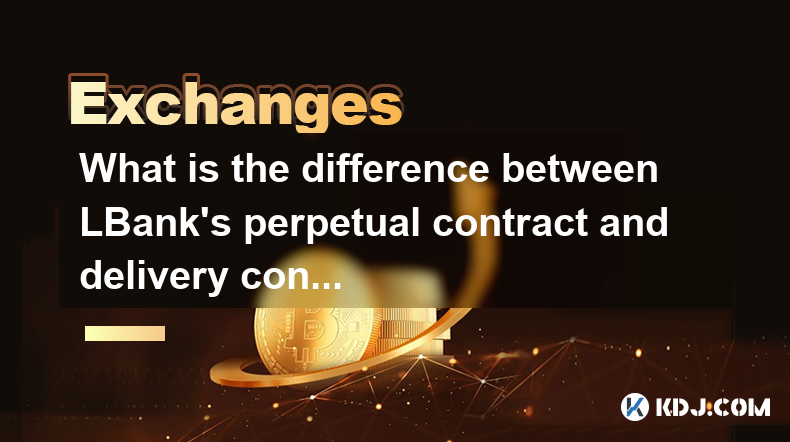
LBank, a prominent cryptocurrency exchange, offers various trading products to cater to the diverse needs of its users. Among these products, perpetual contracts and delivery contracts stand out as popular derivatives trading options. Understanding the differences between these two types of contracts is crucial for traders looking to leverage their positions effectively. This article delves into the specifics of LBank's perpetual and delivery contracts, highlighting their key features, mechanics, and how they differ.
What are Perpetual Contracts?
Perpetual contracts, also known as perpetual swaps, are a type of futures contract that does not have an expiration date. This means that traders can hold their positions indefinitely without the need to roll over to a new contract. On LBank, perpetual contracts are designed to mimic the price movements of the underlying asset, allowing traders to speculate on the future price of cryptocurrencies without owning the actual asset.
One of the defining features of perpetual contracts is the funding rate mechanism. This mechanism ensures that the price of the perpetual contract remains closely aligned with the spot price of the underlying asset. The funding rate is periodically calculated and exchanged between long and short positions. If the funding rate is positive, long position holders pay short position holders, and vice versa if the funding rate is negative. This helps to prevent the perpetual contract price from deviating significantly from the spot price.
What are Delivery Contracts?
Delivery contracts, also known as traditional futures contracts, have a fixed expiration date. Upon expiration, the contract must be settled, either through physical delivery of the underlying asset or cash settlement. On LBank, delivery contracts allow traders to buy or sell a specific amount of a cryptocurrency at a predetermined price on a specified future date.
Unlike perpetual contracts, delivery contracts do not have a funding rate mechanism. Instead, the price of the contract is influenced by market expectations of the future price of the underlying asset. As the expiration date approaches, the price of the delivery contract tends to converge with the spot price of the underlying asset, a phenomenon known as convergence.
Key Differences Between Perpetual and Delivery Contracts
The primary difference between LBank's perpetual and delivery contracts lies in their expiration. Perpetual contracts do not expire, allowing traders to maintain their positions indefinitely. In contrast, delivery contracts have a set expiration date, requiring traders to settle their positions at the end of the contract term.
Another significant difference is the funding rate mechanism. Perpetual contracts use this mechanism to keep the contract price aligned with the spot price, whereas delivery contracts rely on market forces and the convergence effect as the expiration date nears.
Leverage is another area where these contracts differ. Both types of contracts on LBank allow for leveraged trading, but the specifics can vary. Perpetual contracts often offer higher leverage due to their non-expiring nature, which can amplify both potential gains and losses. Delivery contracts, on the other hand, may have more conservative leverage options due to the fixed expiration date.
Trading Strategies for Perpetual and Delivery Contracts
When trading perpetual contracts, traders can employ various strategies to capitalize on market movements. One common strategy is trend following, where traders take long positions in a bullish market and short positions in a bearish market. The absence of an expiration date allows traders to hold their positions as long as the trend continues.
Another strategy is arbitrage, where traders exploit price differences between the perpetual contract and the spot market. By simultaneously buying the asset in the spot market and selling it in the perpetual contract market, traders can profit from the price discrepancy.
For delivery contracts, traders often use hedging strategies to mitigate risk. For instance, a trader holding a cryptocurrency might enter into a delivery contract to sell the asset at a future date, locking in the current price and protecting against potential price drops.
Speculation is another common strategy for delivery contracts. Traders can buy or sell delivery contracts based on their predictions of future price movements. As the expiration date approaches, traders must decide whether to close their positions or let them settle.
Risk Management in Perpetual and Delivery Contracts
Effective risk management is essential when trading both perpetual and delivery contracts. For perpetual contracts, traders must be mindful of the funding rate. A high funding rate can erode profits for long position holders, while a low funding rate can benefit them. Traders should monitor the funding rate and adjust their positions accordingly.
Leverage is another critical aspect of risk management. While leverage can amplify gains, it can also magnify losses. Traders should use leverage cautiously and set appropriate stop-loss orders to limit potential losses.
For delivery contracts, traders must be aware of the expiration date. As the contract nears its expiration, the price can become more volatile due to the convergence effect. Traders should plan their exit strategies well in advance to avoid being caught off guard by sudden price movements.
Position sizing is also crucial for both types of contracts. Traders should allocate only a small portion of their capital to any single trade to diversify their risk. By spreading their investments across multiple positions, traders can reduce the impact of any single loss.
Choosing Between Perpetual and Delivery Contracts
The choice between LBank's perpetual and delivery contracts depends on a trader's investment goals and risk tolerance. Perpetual contracts are suitable for traders who want to maintain long-term positions and benefit from high leverage. The absence of an expiration date allows for greater flexibility in managing trades.
On the other hand, delivery contracts are ideal for traders who prefer a more structured approach to trading. The fixed expiration date provides a clear timeline for settling positions, which can be beneficial for those who want to hedge their investments or engage in short-term speculation.
Traders should also consider their trading style. Those who prefer to actively manage their positions and take advantage of short-term market movements might find perpetual contracts more appealing. Conversely, traders who prefer to set and forget their trades might opt for delivery contracts.
Frequently Asked Questions
1. Can I switch between a perpetual contract and a delivery contract on LBank?
No, LBank does not allow direct switching between perpetual and delivery contracts. Traders must close their existing position and open a new one in the desired contract type.
2. How often is the funding rate calculated for LBank's perpetual contracts?
The funding rate for LBank's perpetual contracts is typically calculated every eight hours. Traders should check the specific details on LBank's platform, as this can be subject to change.
3. What happens if I hold a delivery contract until its expiration date?
If you hold a delivery contract until its expiration date, the contract will be settled according to the terms specified by LBank. This could involve cash settlement or physical delivery of the underlying asset, depending on the contract's specifics.
4. Are there any fees associated with trading perpetual and delivery contracts on LBank?
Yes, LBank charges various fees for trading perpetual and delivery contracts, including trading fees, funding fees for perpetual contracts, and settlement fees for delivery contracts. Traders should review LBank's fee schedule to understand the costs involved.
Disclaimer:info@kdj.com
The information provided is not trading advice. kdj.com does not assume any responsibility for any investments made based on the information provided in this article. Cryptocurrencies are highly volatile and it is highly recommended that you invest with caution after thorough research!
If you believe that the content used on this website infringes your copyright, please contact us immediately (info@kdj.com) and we will delete it promptly.
- Bitcoin Wallet Hack? Coinbase Exec Sounds the Alarm on $8B Whale Movement
- 2025-07-07 18:30:12
- Mercado Bitcoin, Tokenization, and XRP Ledger: A Latin American Power Play
- 2025-07-07 18:30:12
- XYZVerse, Wall Street, and the Crypto Upswing: What's the Deal?
- 2025-07-07 19:10:12
- AI, Web3, and Communities: Building the Future Together
- 2025-07-07 19:10:12
- AurealOne: A Promising Early-Stage Metaverse Project
- 2025-07-07 19:15:12
- Dogecoin Price: Crypto Market Analysis and the Musk Effect
- 2025-07-07 19:50:12
Related knowledge
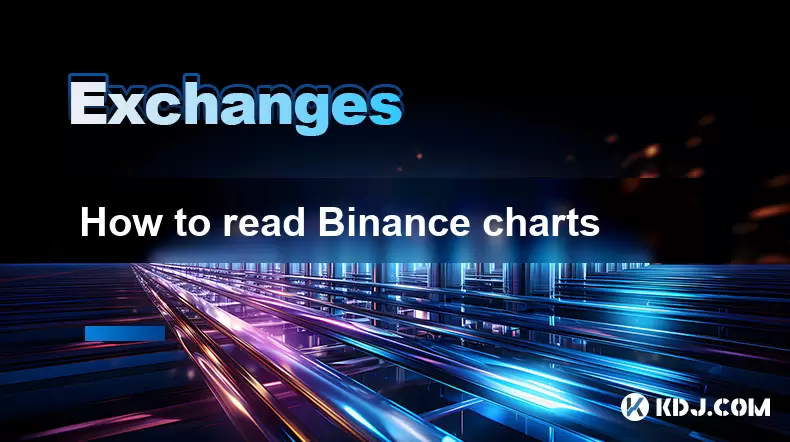
How to read Binance charts
Jul 07,2025 at 08:14pm
Understanding the Basics of Binance ChartsReading Binance charts effectively is essential for making informed trading decisions in the cryptocurrency market. Before diving into technical indicators and candlestick patterns, it's important to understand the basic layout of a chart on the Binance platform. The default chart interface displays price moveme...
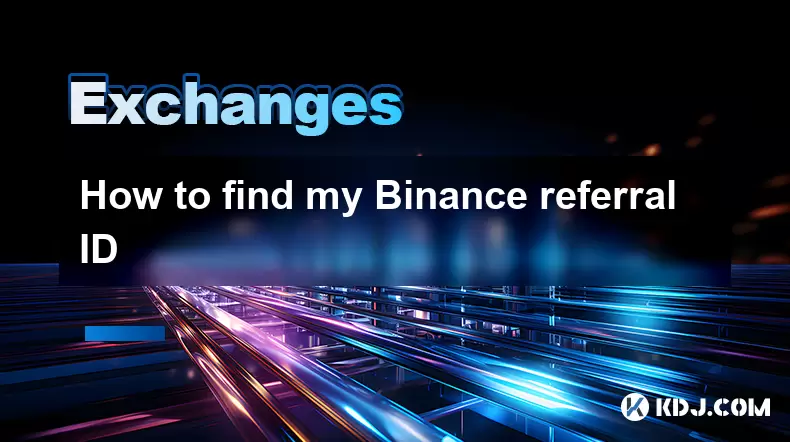
How to find my Binance referral ID
Jul 07,2025 at 06:29pm
What is a Binance Referral ID?A Binance Referral ID is a unique identifier assigned to each user on the Binance platform. This ID allows users to refer new traders to Binance and earn commissions from their trading fees. The referral program is an integral part of Binance’s ecosystem, encouraging community growth and rewarding active participants. Every...
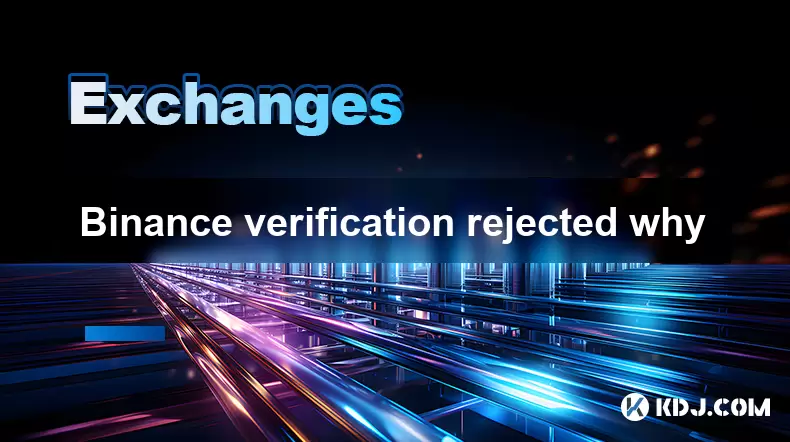
Binance verification rejected why
Jul 07,2025 at 06:57pm
Understanding Binance Verification RejectionIf your Binance verification was rejected, you're likely searching for answers on why this happened and how to resolve it. Binance, as one of the world's largest cryptocurrency exchanges, requires users to complete identity verification to comply with Know Your Customer (KYC) regulations. When a verification r...
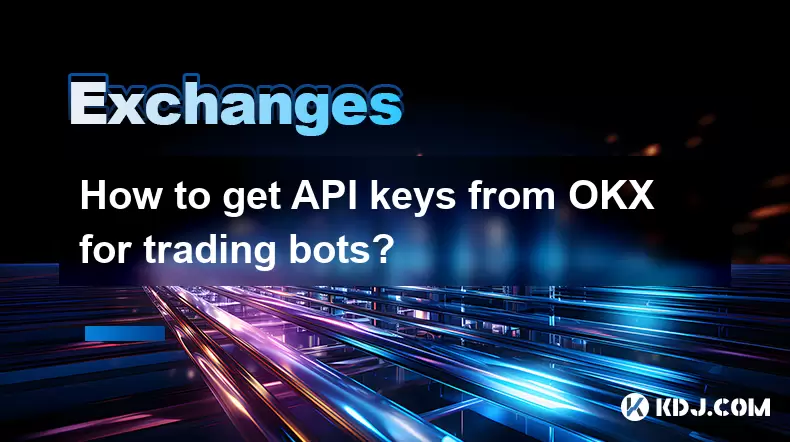
How to get API keys from OKX for trading bots?
Jul 03,2025 at 07:07am
Understanding API Keys on OKXTo interact with the OKX exchange programmatically, especially for building or running trading bots, you need to obtain an API key. An API (Application Programming Interface) key acts as a secure token that allows your bot to communicate with the exchange's servers. On OKX, these keys come with customizable permissions such ...
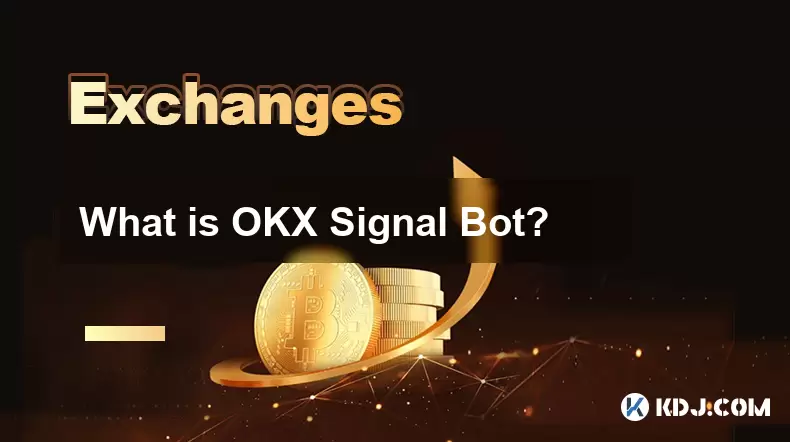
What is OKX Signal Bot?
Jul 02,2025 at 11:01pm
Understanding the Basics of OKX Signal BotThe OKX Signal Bot is a feature within the OKX ecosystem that provides users with automated trading signals and execution capabilities. Designed for both novice and experienced traders, this bot helps identify potential trading opportunities by analyzing market trends, technical indicators, and historical data. ...
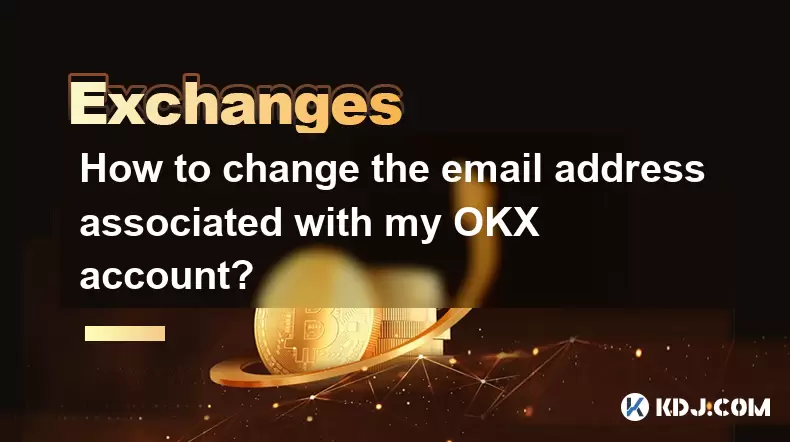
How to change the email address associated with my OKX account?
Jul 07,2025 at 08:07am
How to Change the Email Address Associated with My OKX Account?Changing the email address associated with your OKX account is a crucial process that ensures you maintain control over your digital assets and account security. Many users may find themselves needing to update their registered email due to various personal or technical reasons, such as swit...

How to read Binance charts
Jul 07,2025 at 08:14pm
Understanding the Basics of Binance ChartsReading Binance charts effectively is essential for making informed trading decisions in the cryptocurrency market. Before diving into technical indicators and candlestick patterns, it's important to understand the basic layout of a chart on the Binance platform. The default chart interface displays price moveme...

How to find my Binance referral ID
Jul 07,2025 at 06:29pm
What is a Binance Referral ID?A Binance Referral ID is a unique identifier assigned to each user on the Binance platform. This ID allows users to refer new traders to Binance and earn commissions from their trading fees. The referral program is an integral part of Binance’s ecosystem, encouraging community growth and rewarding active participants. Every...

Binance verification rejected why
Jul 07,2025 at 06:57pm
Understanding Binance Verification RejectionIf your Binance verification was rejected, you're likely searching for answers on why this happened and how to resolve it. Binance, as one of the world's largest cryptocurrency exchanges, requires users to complete identity verification to comply with Know Your Customer (KYC) regulations. When a verification r...

How to get API keys from OKX for trading bots?
Jul 03,2025 at 07:07am
Understanding API Keys on OKXTo interact with the OKX exchange programmatically, especially for building or running trading bots, you need to obtain an API key. An API (Application Programming Interface) key acts as a secure token that allows your bot to communicate with the exchange's servers. On OKX, these keys come with customizable permissions such ...

What is OKX Signal Bot?
Jul 02,2025 at 11:01pm
Understanding the Basics of OKX Signal BotThe OKX Signal Bot is a feature within the OKX ecosystem that provides users with automated trading signals and execution capabilities. Designed for both novice and experienced traders, this bot helps identify potential trading opportunities by analyzing market trends, technical indicators, and historical data. ...

How to change the email address associated with my OKX account?
Jul 07,2025 at 08:07am
How to Change the Email Address Associated with My OKX Account?Changing the email address associated with your OKX account is a crucial process that ensures you maintain control over your digital assets and account security. Many users may find themselves needing to update their registered email due to various personal or technical reasons, such as swit...
See all articles





















